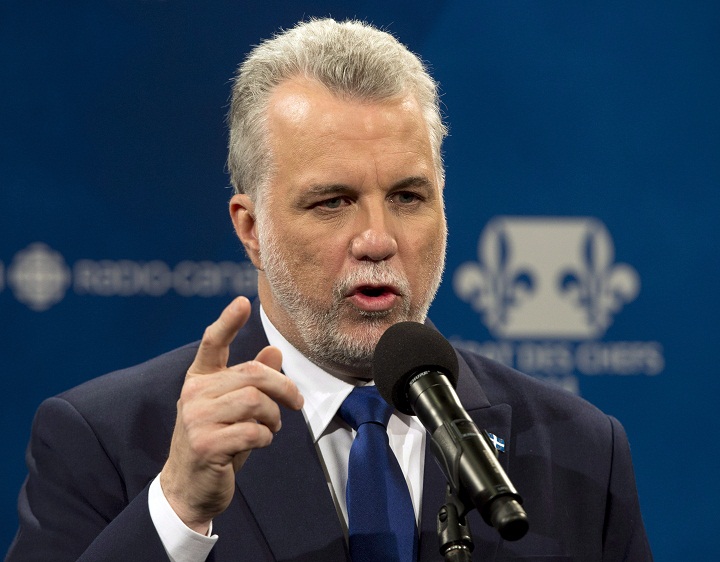MONTREAL – Jean Charest was once dubbed Captain Canada for his impassioned speeches to federalist forces in the 1995 referendum campaign.

Philippe Couillard, his successor as Liberal leader, could easily be nicknamed Major Canada as he bids to become Quebec premier in Monday’s election.
Couillard has emerged as one of the most openly federalist Quebec politicians in generations, touting former prime minister Sir Wilfrid Laurier as an inspiration for his own party and extolling Canada as a financial powerhouse that benefits its citizens.
“We are Quebecers first but we are also proud to belong to the Canadian federation,” he has said. “But beyond the numbers and the billions, it’s first and foremost for us the choice of a model of citizenship that is the envy of the entire planet.”
That’s not the type of thing one hears much from a Quebec federalist leader, even Charest, who was a federal Conservative cabinet minister and leader before jumping to Quebec politics and eventually became a Liberal premier.
He and others such as Jean Lesage and Robert Bourassa made sure their nationalist credentials were well known as they worked within the federation.
Couillard’s frankness on the explosive issue of language has also differed from his predecessors who hewed to tougher enforcement of the province’s language laws.
Couillard, who speaks fluent English, raised eyebrows when he suggested during a recent election debate that while the language law must be enforced, bilingualism is also a useful skill.
The former neurosurgeon and teacher was one of the most popular members of Charest’s cabinet after being elected in 2003 and being appointed as health and social services minister.
- Posters promoting ‘Steal From Loblaws Day’ are circulating. How did we get here?
- Video shows Ontario police sharing Trudeau’s location with protester, investigation launched
- Canadian food banks are on the brink: ‘This is not a sustainable situation’
- Solar eclipse eye damage: More than 160 cases reported in Ontario, Quebec
He clashed with Charest over the location of the French-language Montreal superhospital and won.
Touted as a potential successor to Charest and rumoured as a possible federal Conservative candidate, Couillard decided to quit politics in 2008.
He founded a consulting business with Arthur Porter, a hospital executive in Montreal whom he also knew from sitting on the federal Security Intelligence Review Committee after leaving politics.
The firm never conducted any business and never went anywhere, according to documents Couillard recently released.
Couillard has been keen to distance himself from Porter, who is now facing fraud charges in connection with the construction of the Montreal English-language hospital. Porter has denied any wrongdoing.
Couillard, 56, was born in Montreal and practised medicine in Quebec as well as Saudi Arabia. He was criticized during the campaign for using a tax haven while in the Middle East but has insisted it was perfectly legal.
An intellectual known for keeping his cool to the point of detachment, Couillard’s nickname when he was health minister was Bear, because of his large physique.
The father of five children insisted he focused on issues important to Quebecers during the campaign, targeting the economy and health care.
He accused his Parti Quebecois opponents of creating “sideshows” and said he put the sovereignty issue out front because he felt it had to be addressed head-on.
Couillard also insisted he would not participate in the mudslinging that coloured one of Quebec’s nastiest elections ever.
“This gives me, I believe, the credibility the day after the election to rally Quebecers,” he said.



Comments